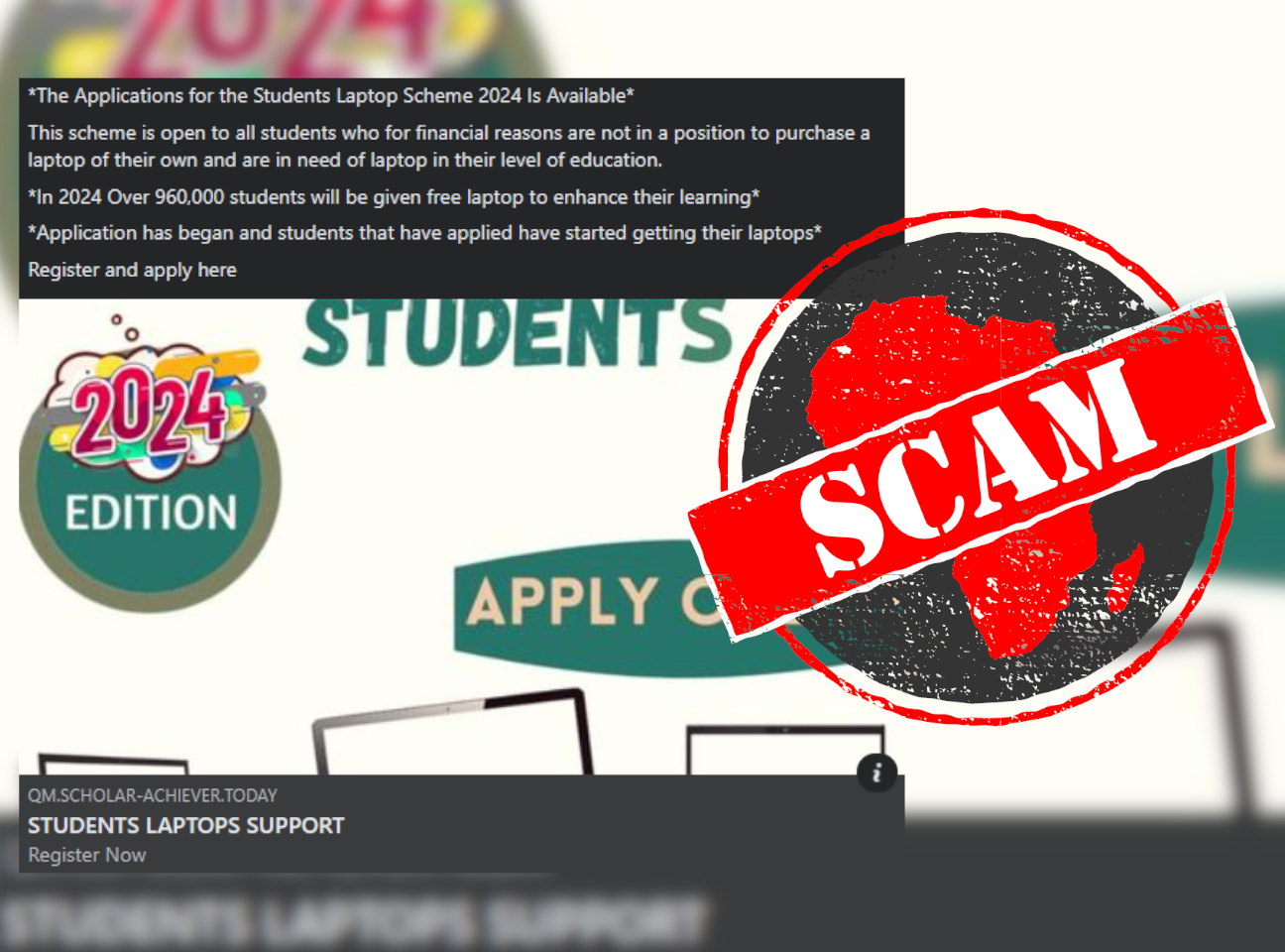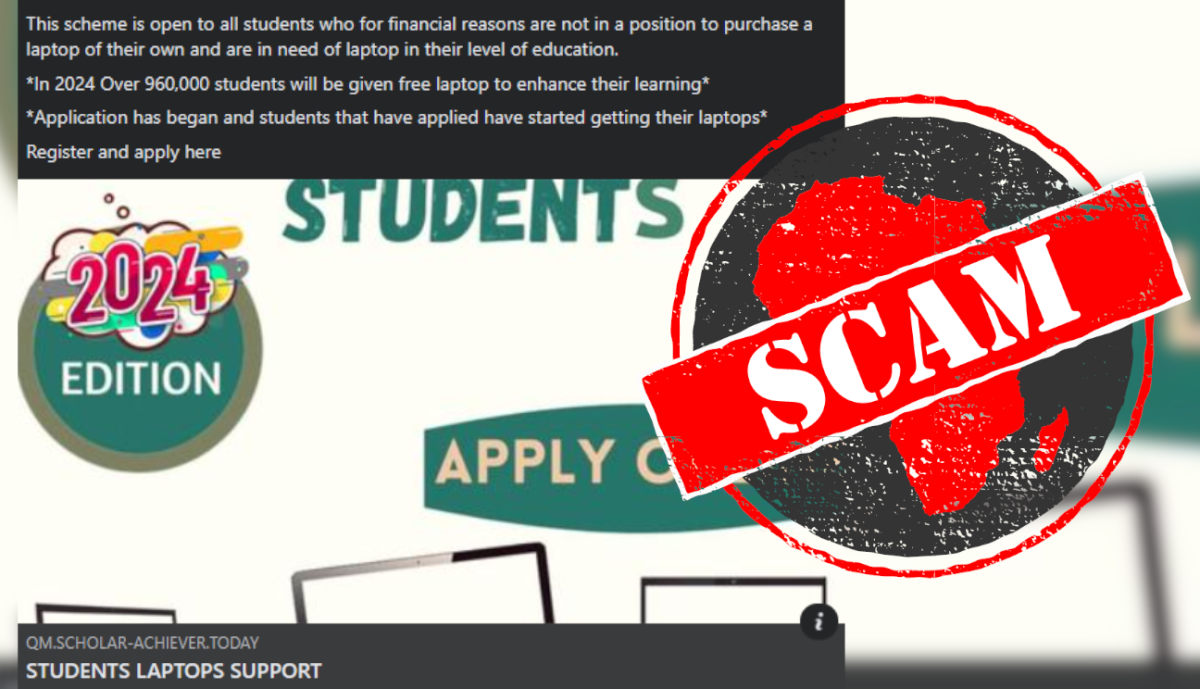IN SHORT: These posts and a website promise laptops to thousands of students who cannot afford them. But this is a classic example of engagement bait, and those behind it may be trying to steal your valuable personal information.
“The Applications for the Students Laptop Scheme 2024 Is Available. This scheme is open to all students who for financial reasons are not in a position to purchase a laptop of their own and are in need of laptop in their level of education,” reads a message circulating on Facebook in Kenya.
The message also says: “In 2024 Over 960,000 students will be given free laptop to enhance their learning. Application has began and students that have applied have started getting their laptops. Register and apply here.”
The post then links to an amateurish-looking website – qm.scholar-achiever.today – where interested users can supposedly apply for the laptops.
The message has been published on different Facebook groups and timelines here, here, here, here, here, here, here, here and here.
But is the website and information about free laptops to students legit? We checked.

Malicious website
When we clicked on the link in the post, our computer’s antivirus program warned us that it was potentially malicious. We took the risk – not recommended – and opened the site.
The website’s home page is headed: “FREE LAPTOPS FOR STUDENTS.” It includes an application form that asks for personal details, such as name, education level and age. It also wants users to specify the brand of laptop they want.
We filled in the form with fake details and were taken to the next stage, where we were asked to confirm our name and the purpose of the laptop.
After completing this stage, we were told that we had been approved to receive the laptop.
But there was a catch. We were instructed to share the website “with 15 friends or 5 groups on WhatsApp” by clicking on a green button.
This is simply engagement bait. These are social media posts that ask people to interact by liking, commenting or sharing. This increases the reach of the post but ultimately offers no reward. Such links may also be attempts to steal the user’s personal information.
To help protect yourself against online fraudsters, read our guide to Facebook scams and how to spot them.
Republish our content for free
For publishers: what to do if your post is rated false
A fact-checker has rated your Facebook or Instagram post as “false”, “altered”, “partly false” or “missing context”. This could have serious consequences. What do you do?
Click on our guide for the steps you should follow.
Publishers guideAfrica Check teams up with Facebook
Africa Check is a partner in Meta's third-party fact-checking programme to help stop the spread of false information on social media.
The content we rate as “false” will be downgraded on Facebook and Instagram. This means fewer people will see it.
You can also help identify false information on Facebook. This guide explains how.




Add new comment